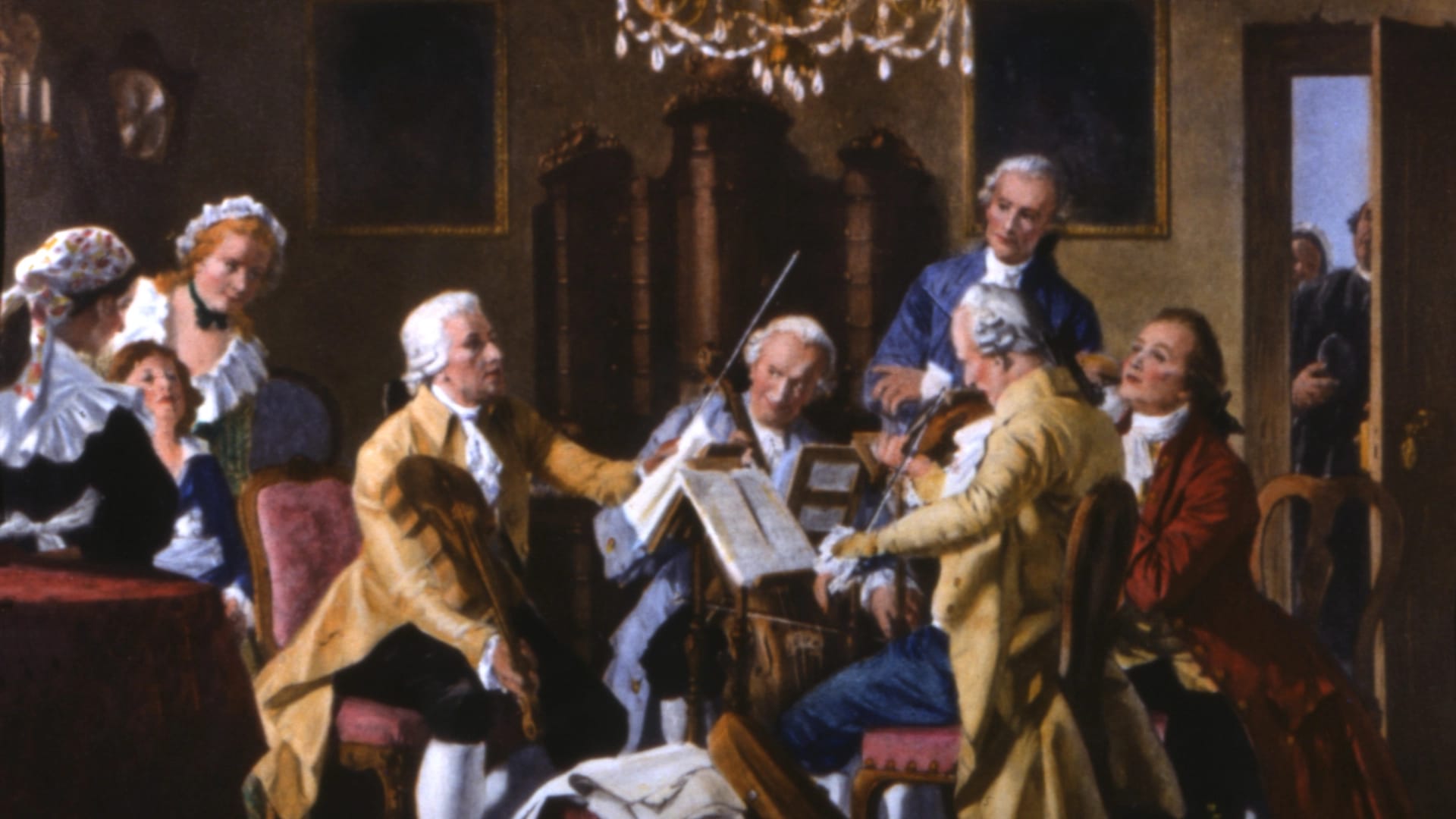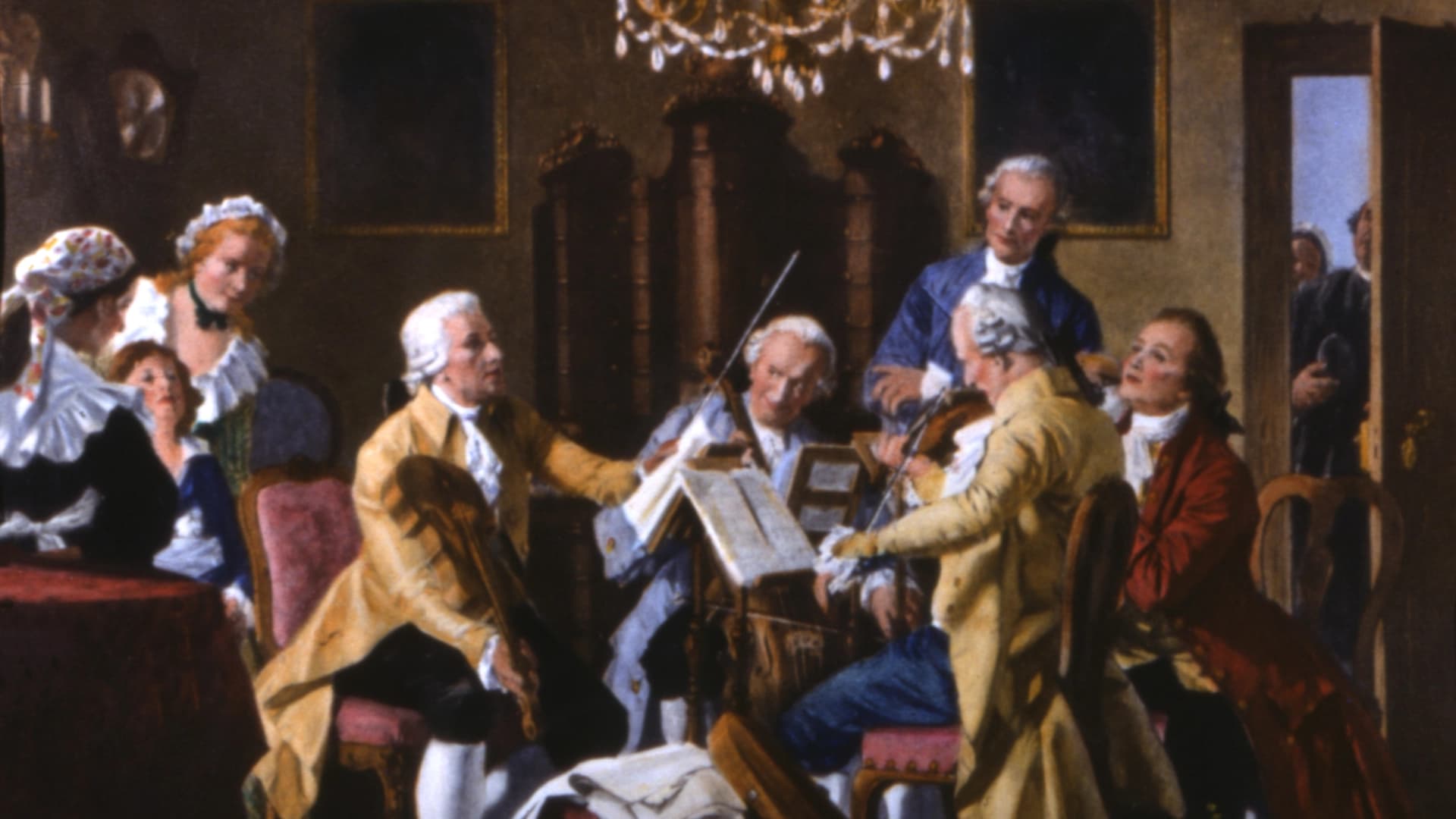
articles / Saturday Morning Car Tunes
Saturday Morning Car Tunes: Joseph Haydn, Pt. III
Bettmann/Getty Images

Bettmann/Getty Images
Listen to the episode!
“No, I am your father” (à la Darth Vader). This week, we're taking a look at some of Haydn's 68 "children." WARNING: A quartet of strings attached.
Howdy, howdy, howdy! I’m Solomon Reynolds, and this is Saturday Morning Car Tunes! This morning, it’s all about the quartet. No, not the barbershop! The string quartet. Ahh, that’s better.
Joseph Haydn is known as the Father of the String Quartet. It all started with a type of music called the divertimento, which was meant for outdoor parties and social gatherings—fun background music. While writing divertimenti for four instruments—two violins, a viola, and a cello—Haydn said he accidentally discovered what we now call the string quartet. Here’s one of the first ones he wrote: his String Quartet No. 1.
Haydn consistently wrote so many high-quality quartets that he basically defined what they are. His Op. 20 quartets set the standard four-movement form: two fast movements on the outside, with a slow movement and a minuet, or dance, in between. Haydn’s Op. 33 quartets were a turning point for the genre, because they influenced so many other composers to write their own. This is music from one of those influential quartets: "The Bird." Did you hear it?
After hearing that, Mozart tried to emulate Haydn’s mastery by composing six quartets of his own, dedicating them to his best friend, Joseph Haydn. This is from Mozart’s String Quartet No. 17, called "The Hunt." Did you catch the horn calls?
Beethoven studied one of Haydn’s string quartets by writing the whole thing out, note for note. Afterwards, he wrote some quartets himself. This is from Beethoven’s String Quartet No. 6.
Following the examples of Mozart and Beethoven, who both learned from Haydn, Mendelssohn added his String Quartet No. 3 to the canon. Schumann also studied Haydn’s quartets when he wrote his own String Quartet No. 1. Brahms even had an autographed manuscript of Haydn’s Op. 20 quartets. He wrote his String Quartet No. 2 with four movements, just like Haydn did.
Dvořák once said, “I wanted to write something for once that was very melodious and straightforward, and dear Papa Haydn kept appearing before my eyes.” Dvořák then went on to write one of the most popular quartets out there: his American Quartet, based on Black American spirituals.
Haydn once wrote a melody for the emperor, which he used in his String Quartet No. 62. It later became Germany's national anthem. Here’s the German singer-songwriter Nico performing the third verse.
String quartets—they’re Haydn in plain sight!
I’m Solomon Reynolds. I write and produce Saturday Morning Car Tunes with research assistant Carolina Correa and audio engineer Stephen Page, only on Classical California. Tune in—or out of your car—next Saturday morning!





